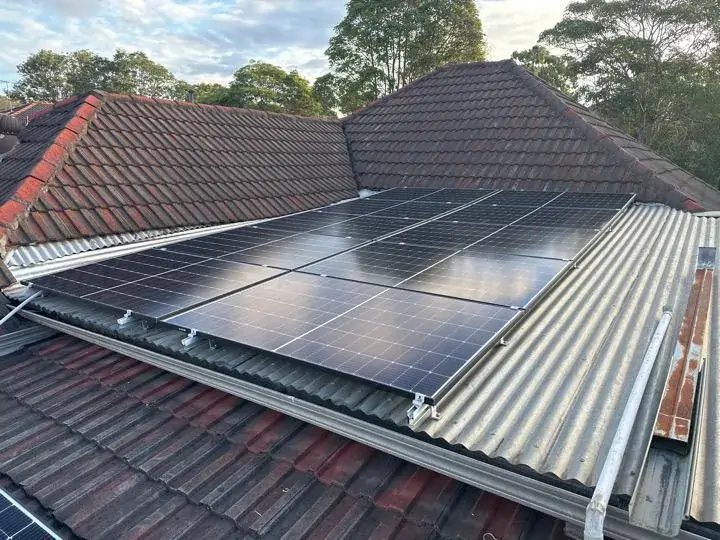Residential Battery System: The Ultimate Guide to Home Energy Storage
As energy demands grow and electricity prices continue to fluctuate, a residential battery system has emerged as a transformative solution for homeowners seeking energy independence, cost efficiency, and sustainability. This in-depth guide explores everything you need to know about home energy storage systems, from technology and benefits to installation and maintenance.
What Is a Residential Battery System?
A residential battery system is an energy storage unit designed to store electricity for later use. Typically paired with a solar panel system, these batteries allow homeowners to store excess solar energy generated during the day and use it during the night or during blackouts.
Modern battery systems are smart, scalable, and highly efficient, making them an ideal solution for both grid-tied and off-grid homes.
Key Benefits of Installing a Residential Battery System
1. Maximize Solar Power Usage
With a home battery storage system, solar energy doesn’t go to waste. Any surplus electricity generated by solar panels can be stored and used when sunlight isn’t available, reducing reliance on the grid and increasing self-consumption rates.
2. Protection Against Blackouts
Many residential batteries provide backup power during grid outages, keeping essential appliances and devices running. This is especially critical in areas prone to power cuts or natural disasters.
3. Reduce Energy Bills
By storing electricity during off-peak hours or from solar, homeowners can avoid buying power during expensive peak periods. In regions with time-of-use electricity rates, battery storage leads to significant cost savings.
4. Environmental Sustainability
Residential battery systems support a cleaner, greener lifestyle by reducing carbon emissions and dependency on fossil fuels. When paired with solar panels, they form a powerful renewable energy system that minimizes environmental impact. A commercial battery system offers businesses a reliable way to store excess energy and reduce electricity costs.
Types of Home Battery Storage Technologies
1. Lithium-Ion Batteries
Lithium-ion is the most popular battery technology for residential use due to its high energy density, compact size, and long lifespan. Brands like Tesla Powerwall, LG Chem RESU, and Sonnen offer advanced lithium-ion solutions with intelligent energy management.
2. Lead-Acid Batteries
These are more affordable but offer lower efficiency and shorter life cycles compared to lithium-ion. They are still suitable for small-scale or budget-conscious users, especially in off-grid applications.
3. Flow Batteries
A less common but emerging technology, flow batteries offer longer life cycles and are ideal for large-scale energy storage. However, they are bulkier and more expensive than lithium-based systems.
How Does a Residential Battery System Work?
A typical residential battery system works in conjunction with solar panels and an inverter:
-
Solar panels generate electricity during the day.
-
Excess electricity is stored in the battery system instead of feeding it back to the grid.
-
During periods of low sunlight or at night, the stored energy is converted from DC to AC by the inverter and used to power the home.
Systems can be configured for self-consumption, backup power, or grid independence, depending on your energy needs and goals.
Key Components of a Residential Battery System
-
Battery Pack – Stores electricity.
-
Inverter/Charger – Converts current and manages charging/discharging.
-
Battery Management System (BMS) – Protects the battery and optimizes performance.
-
Energy Monitoring System – Allows real-time tracking and system control via apps or software.
Sizing Your Residential Battery System
Assess Your Energy Consumption
Start by analyzing your daily energy usage. Look at your electricity bill and identify your peak usage hours. Battery size is usually measured in kilowatt-hours (kWh), indicating how much energy the battery can store.
Choose the Right Storage Capacity
-
5–10 kWh: Ideal for small homes or light backup needs.
-
10–15 kWh: Suitable for average households with moderate energy use.
-
15+ kWh: Best for large homes or those wanting complete energy independence.
Always factor in future needs like EV charging, appliance upgrades, or solar expansion.
Installation and Setup
Site Assessment
A professional installer will evaluate your property layout, solar system compatibility, electrical panel capacity, and ventilation needs.
Permits and Approvals
Local codes and utility regulations vary. Ensure you have the necessary permits, and your system meets safety standards.
Installation Timeframe
Depending on the complexity, installation can take 1 to 3 days, including commissioning and configuration of your monitoring system.
Cost of a Residential Battery System in 2025
The total cost varies based on battery capacity, brand, installation, and incentives:
-
Lithium-ion systems: $9,000–$20,000 installed
-
Lead-acid systems: $5,000–$10,000 installed
-
Flow batteries: $20,000+ for high-capacity models
Government rebates and solar battery incentives can significantly reduce upfront costs. Some regions also offer feed-in tariffs and virtual power plant participation programs.
Maintenance and Lifespan
Modern batteries require minimal maintenance, but routine checks can ensure optimal performance:
-
Monitor battery health via software
-
Keep the area clean and ventilated
-
Schedule periodic inspections by a technician
Lithium-ion batteries generally last 10–15 years or 6,000–10,000 cycles, depending on usage patterns and brand.
Is a Residential Battery System Right for You?
A residential battery system is ideal for:
-
Homeowners with solar panels looking to maximize energy use
-
Households in blackout-prone areas
-
Eco-conscious individuals aiming for sustainable living
-
Those seeking to cut electricity bills and gain energy independence
With the right system, you’ll enjoy lower bills, greater reliability, and a smaller carbon footprint.
Conclusion: Power Your Home Smarter with a Residential Battery System
Investing in a residential battery system is one of the most effective ways to future-proof your home’s energy needs. It enhances the value of your solar system, provides critical backup during outages, and leads to long-term energy savings. With a wide range of technologies, capacities, and incentives, now is the best time to harness the power of home energy storage.













Post Comment